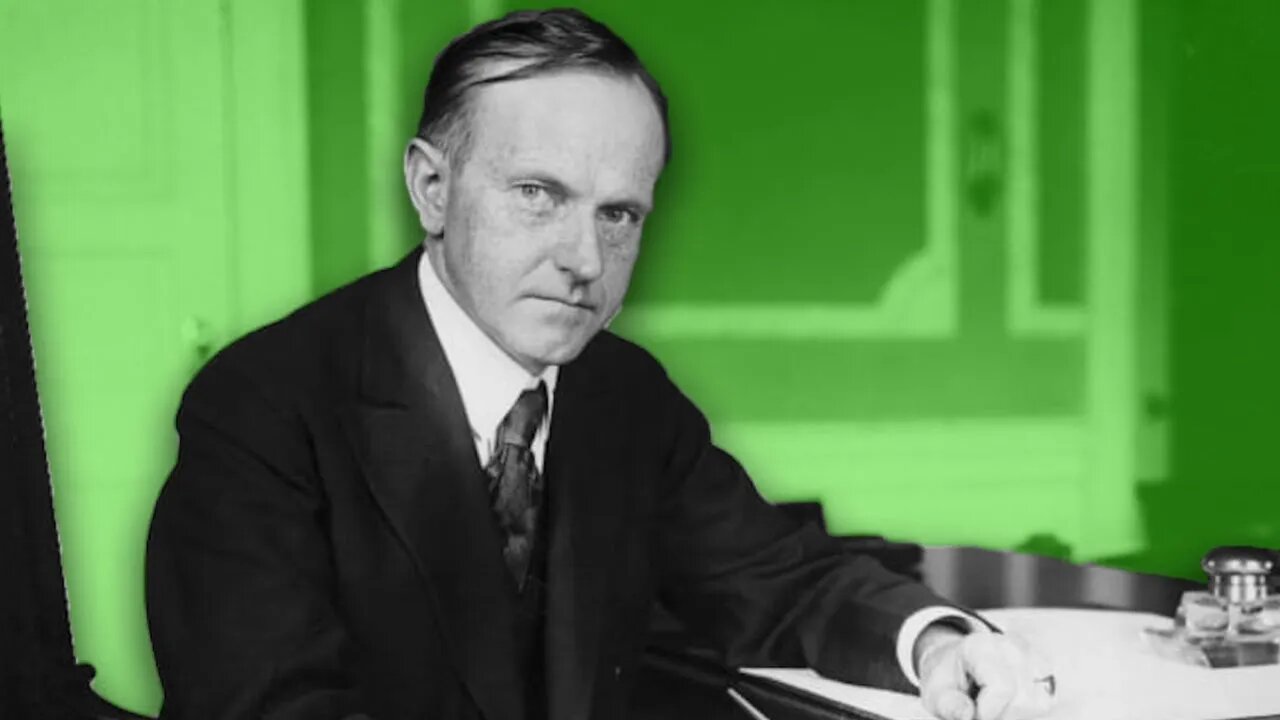Premium Only Content

Why Republicans Have FAILED to Balance the Budget
The last Republican president to not add to the national debt was Calvin Coolidge.
The last Republican president to balance the federal budget was Dwight D. Eisenhower in 1960.
And the last Republican Congress to balance it was in 2001.
Over the last 50 years, the Republican Party has largely failed at fis-cul responsibility.
With that said, it’s important we understand how to balance the budget so we don’t fall into the trap of thinking that the way to do it is via tax hikes.
Priority #1
Republicans first budgetary priority should be to cut taxes in order to reduce federal revenue as a percentage of GDP.
If after a tax cut, federal revenue is still above 10% then that means it wasn’t cut enough. If we cut taxes a little then that could actually increase federal revenue, but as conservatives we shouldn’t want to see “tax cuts pay for themselves.”
If federal revenue falls below 10% then we can start to consider its ideal level (3% is the historical average), but since that’s unlikely to happen anytime soon due to the rising cost of entitlements and the Left’s incessant desire for more spending then this potential point of departure among the Right will unfortunately likely remain theoretical in our lifetime.
As long as federal revenue is above 10%, Republicans should vote nay to its increase even if Democrats offer 3-to-1 spending cuts as a compromise because spending cuts are easier to reverse.
“A tax cut means higher family income and higher business profits and a balanced federal budget.” — John F. Kennedy
The modern Democratic Party supports increasing federal revenue because on the surface 16.3% (2019) of the largest GDP in the world may not sound like much, but when you add it on top of state and local taxes, government tax revenue is roughly 40% of GDP or $25K per person, which is more than what virtually every government on Earth taxes per person.
As a federalist, I believe local and state governments should have a larger share of the tax revenue so that if you wanted to keep tax revenue at 30% GDP then one way to think about it is your city government would get 10%, state government 10%, and the federal government 10% (historically federal spending was 1/3).
Power to the states!
This was the intent of our constitution in part because it’s fundamentally more democratic so if, for example, Texans want less government (8%) and New Yorkers want more (14%) they can have that choice! The more decentralized power is then the more your voice matters!
Overall, for those of you who are skeptical of low taxes let me just make several quick points. Taxes reduce economic growth, which as the 90′s proved economic growth is the primary way to reduce deficits. Taking people’s money by force (government) is inherently less effective at creating positive outcomes than earning people’s money (free market) by providing so much value they voluntarily trade it to you. You’d be hard-pressed to find a single thing that the government does that the private sector can’t do 10X better. High taxes lead to less innovation. How many bureaucrats does it take to make a lightbulb? There’s probably a subcommittee investigating that question for three decades and We the People are too ignorant and busy to care. High taxes also lead to more corruption. There’s no campaign finance law that has ever or will ever “get money out of politics” and anyone who suggests such is selling you a fairytale. And then finally just as I’m a federalist, I’m a nationalist. I believe in financial diversification. Europe, you do you! There are tradeoffs between an equality-centric economy and a growth-centric economy, but I believe for the sake of global freedom America must be growth-centric if we’re going to have any chance at staying more powerful than authoritarian China.
Priority #2
Ideally, tax cuts should be offset by spending cuts.
My biggest gripe with Trump is that he increased federal spending in real terms during a time of peace and growth with a Republican House and Senate. I get not wanting to touch the third rail of American politics (entitlements), but this would’ve been a good time to at least slash the federal bureaucracy by 10%.
Presidents want to make the popular Keynesian move of cutting taxes and increasing spending (win-win), but Republicans should know that there’s no free lunch except in a mousetrap.
The federal budget may not be balanced, but it is complete. In other words, if spending exceeds taxes then the hole must be filled via borrowing.
This borrowing isn’t paid for in the distant future long after we’re all dead, but we start paying for it immediately in the form of interest and inflation.
Inflation is a hidden tax that hits workers and savers the hardest.
We can therefore think of federal spending as the true cost of our government more so than even federal revenue.
Read FULL @ AnthonyGalli.com
-
 1:45:59
1:45:59
Spittin' Chiclets
1 day agoCanadian Chokejob - Game Notes Live From Chicago - 12.28.2024
173K28 -
 9:18
9:18
Space Ice
13 hours agoThe Guyver - Alien Bug Suits, Exploding Dragons, & Mark Hamill - Weirdest Movie Ever
72K19 -
 12:46
12:46
RealReaper
1 day ago $6.04 earnedMufasa is a Soulless Cash Grab
26.2K6 -
 5:14:24
5:14:24
FusedAegisTV
14 hours agoWelcome to The King of Iron Fist Tournament! \\ TEKKEN 8 Stream #1
104K1 -
 DVR
DVR
Bannons War Room
1 year agoWarRoom Live
101M -
 5:42:36
5:42:36
FreshandFit
20 hours agoLive X Censorship For Opposing Immigration?!
215K105 -
 1:08:16
1:08:16
Tactical Advisor
15 hours agoNEW Budget Glocks | Vault Room Live Stream 011
107K9 -
 16:30
16:30
SNEAKO
22 hours agoNO FRIENDS IN THE INDUSTRY.
145K66 -
 6:19
6:19
BlackDiamondGunsandGear
1 day agoHow Fat Guys can Appendix Carry
102K12 -
 6:58
6:58
Gun Owners Of America
1 day ago2024 Was Huge For Gun Rights, Here's Our Top 10 Wins!
82K8